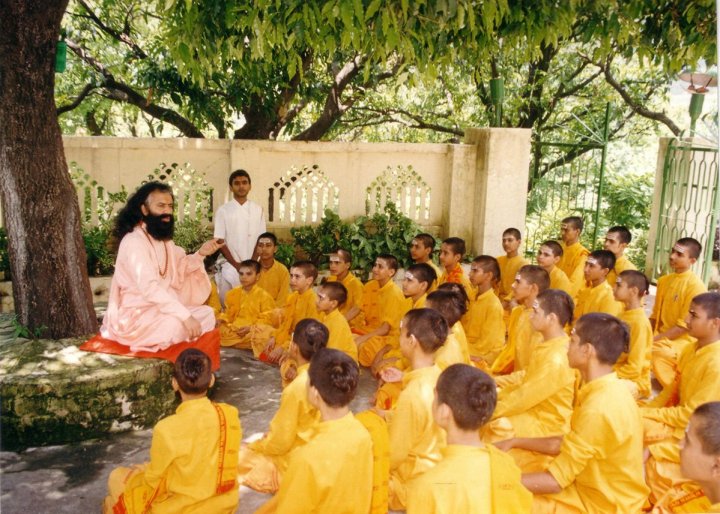Oriental-Occidental Controversy was an ideological conflict between two groups of people in India during the British colonial rule. The ideological quarrel was related to the organization of modern education India. Britishers started organizing the formal educational system in India only during the first half of the 19th century, though they had reached India during the first part of the 17th century. Their real intention behind their sailing to India was not administrative. They came to India just for trade. It was not a venture of the British Government. A company which had been started in Britain under the title of ‘British East-India Company’, wanted to spread their business, and opened an office and factory in then Madras and now Chennai. They might not have even imagined in their distant dream that they would rule India. However, the dramatic events spread across two centuries caused for the commencement British colonial rule in India just after the War of Plassy in 1757. It was a turning point in the history of modern Indian Education.
As they became the rulers of India, they wanted to implement the modern administrative system in India by following the British model of administration. They needed modern officials for the purpose. The newly emerged situation made them think about giving modern education to Indians by establishing modern educational institutions in India. The first step was declaring a charter act in 1813 which is known as the Charter Act of 1813. In this chart, they introduced a grant-in-aid programme of offering a financial aid of Rs.100000 to all the indigenous educational institutions in India. A new charter act was later announced in 1817 which is known as the Charter Act of 1817 in which the financial support was increased to Rs.200000.
Mean while, an ideological clash emerged. The clash is known as Oriental-Occidental Controversy. Some people advocated that the educational system should be accepted the languages such as Arabic, Sanskrit and Urdu as the medium of instruction. They also wanted that eastern literature i.e. the literary pieces written in Arabic, Persian and Sanskrit should be taught in educational institutions. This group is known as the orientals. Another group which included Indians, too, argued that English should be the medium of instruction rather than using the languages such as Arabic, Persian and Sanskrit. They also stood for the teaching of the European literature in educational institutions.This group of people is known as the occidentals. Hence, the clash is known as the Oriental-Occidental Controversy.
India had a great and glorious academic history even before the arrival of the Britishers in India. During the Vedic age, a comprehensive and residential educational system had been prevailing in India. During the Buddhist period, educational institutions consisting of thousands of teachers and students prevailed in India. During the medieval period thousands of Madrassas and Makthabs were built. These traditional or indigenous educational institutions were still existing even when Britishers took charge of administration in India. The orientalists were afraid that the great Indian culture would be brutally destroyed by the Britishers. They felt that there was some hidden agenda for the Britishers by starting modern educational institutions in India. The previous actions of Britishers in India was so. They had always pretended to be the friends of each and every kingdom in India, and whenever they had got a chance they had cheated these kingdoms by helping the enemy kingdom. They had always displayed their opportunism since their arrival in India.It was this opportunism that actually made them capture the administrative power in India. This opportunistic tendency of Britishers made the orientalists think that everything would be anglicised gradually with the establishment of the modern educational system in India. At the same time, some Indians, who had already started enjoying the status they had had because of their capacity to speak in English language and tendency of behaving like Britishers, stood firmly for the promotion of English language in India. They had already started underestimating the eastern literature and culture. They believed that English education can bring progressive changes in India.

As the controversy hindered the progress of modern education in India, Lord Macaulay was brought to India to solve the problem.Thus he submitted a report to the governor general of the time. The report is known as Macaulay’s Minutes of 1835. We would rather say he put an end to the Oriental-Occidental Controversy than solved the entire problem. Macaulay’s Minutes contained more controversial recommendations like acceptance of English as the medium of instruction at all the levels of education, teaching of European literature in educational institutions, stopping the grant-in aid system for the indigenous educational institutions in India and adopting Downward Filtration Theory for educating the mass. Though the Macaulay’s minutes was capable of stopping the Oriental- Occidental Controversy in the peripheral level, it widened the internal frustration among the major part of the society who supported the orientalists. The fuzz created by Macaulay’s Minutes among the people of the society worsened the situation which led to the appointment of Charles Wood who later submitted his historic report called ‘Wood’s Dispatch’.

Very well written. You saved me for my finals. Keep writing more such Education answers👍
LikeLike
Thanks a lot for your appreciation. I will post more such articles in future. I have written a book under the title ‘Knowledge and Curriculum’ which discusses a number of educational topics. It will be shortly listed on flipkart.
LikeLike